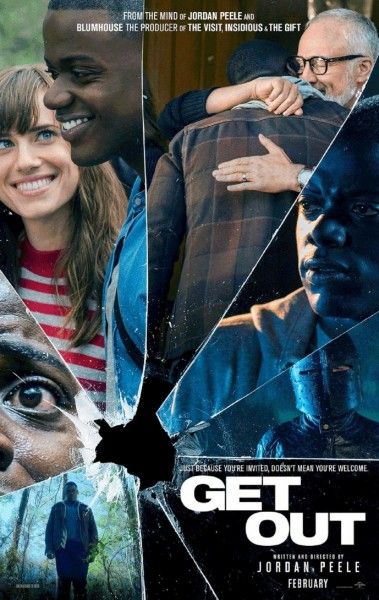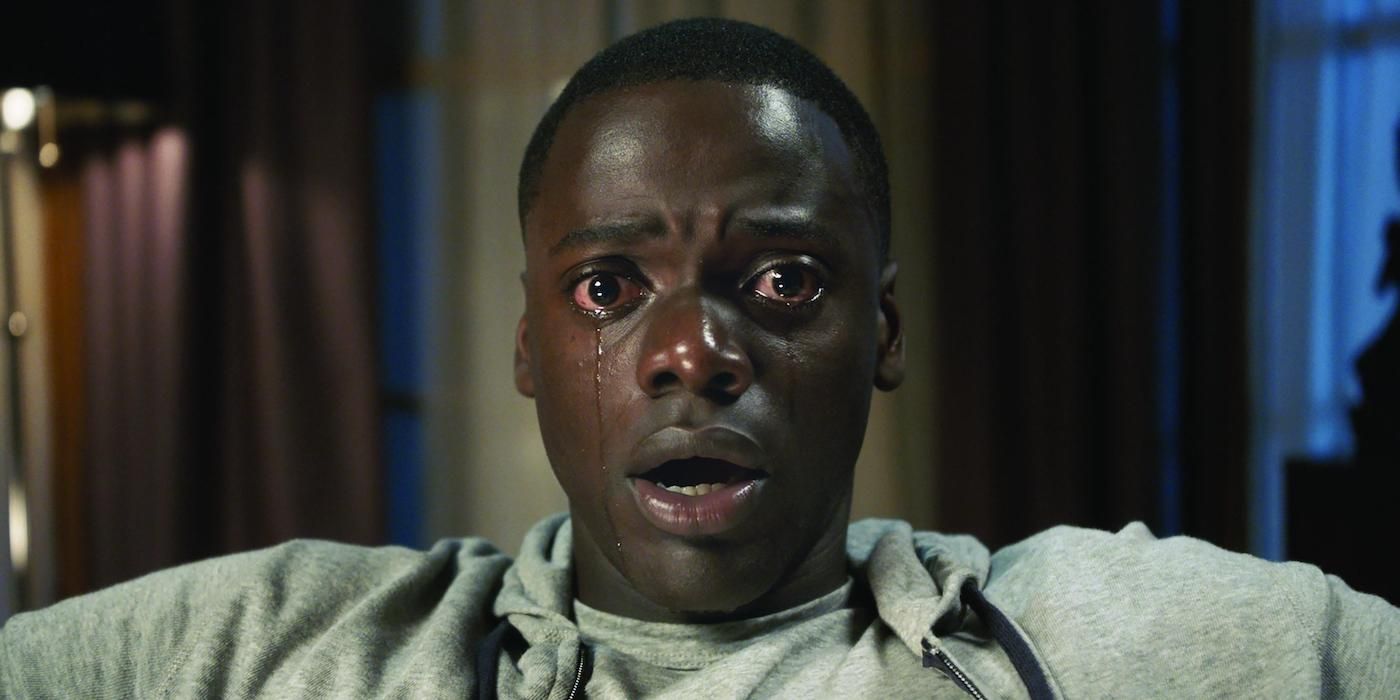The Big Picture
Jordan Peele’s acclaimed directorial debut project, Get Out, is one of the most grim and thought-provoking films released in the last decade. The psychological thriller features everything from body-swapping to a poignant commentary on the pervasiveness of racism in the world. The film follows Chris (Daniel Kaluuya), a Black man who discovers some horrifying secrets when he and his girlfriend Rose Armitage (Allison Williams) visit her family home. Chris uncovers the sinister scheme laid out by their family, where they transplant their brains into the bodies of abducted Black people in order to achieve a heinous form of immortality.
In the theatrical release of the film, Chris is able to fulfill the title of the movie and successfully gets out from the cruel trap laid out for him, but that wasn’t Peele’s original plan. The movie’s original ending was significantly more depressing, highlighting the inescapable trappings of systemic racism as Chris finds himself arrested and imprisoned after his exhaustively traumatizing ordeal.

A young African-American visits his white girlfriend’s parents for the weekend, where his simmering uneasiness about their reception of him eventually reaches a boiling point.
Release Date February 24, 2017
Director Jordan Peele
Cast Daniel Kaluuya, Allison Williams, Catherine Keener, Bradley Whitford, Caleb Landry Jones, Marcus Henderson
Rating R
Runtime 103
Main Genre Horror
The Original Ending of ‘Get Out’ Was Way More Depressing
The theatrical ending of Get Out is technically a happy ending, as Chris is able to escape the plotting of the Armitages with his life. After a vicious chase, he is able to shoot Rose with a rifle, which gives him the chance to strangle her, but his conscience stops him from finally killing her. Police sirens arrive, briefly scaring the audience as Rose starts crying for help with Chris in a compromising and guilty position. Luckily, the driver of the police car is revealed to be Chris’ friend Rod (Lil Rel Howery), who has come to rescue him. The alternate ending, however, answers the question: what if it was actually the real police that arrived on the scene?
Peele’s original vision for Get Out’s ending was much darker and more depressing than the final product. In the movie’s original ending, it wasn’t Rod who arrived to save the day, but real police officers who showed up and arrested Chris for the murder of the Armitage family. Chris is sent to prison and, with no one believing his account of the events, loses hope of actually achieving justice. Rod visits Chris in jail, asking him for more information about the night so that they can continue investigating and prevent this atrocity from happening to other people. However, a despondent Chris refuses to tell Rod anything further, insisting that he had stopped the family and everything was okay. It was an ending that left a distinct feeling that it was not at all okay. Peele’s original ending was a poignant commentary on the realities of racism and the system that perpetuates it; even though Chris had escaped Rose’s family, he was still found guilty of murder and would feel unable to stop others from the same fate.

This ending would have also highlighted the infuriatingly effective advantages that Rose has as a villain. At the beginning of the film, she makes it clear that she understands how to use her privileges as a white woman to her advantage by talking back to a cop in one of the early scenes. When it is revealed that she had been lying to Chris this entire time, her amicable persona is revealed to be a facade that hid a heinous, twisted villain. Even if Rose still dies from her wounds (she was shot point-blank with a rifle), her character would still be able to get away with one last insulting victory with Chris being sent to prison and losing all hope for justice for him and all the other victims of the Armitage family.
That Wasn’t ‘Get Out’s Only Bleak Alternate Ending
On Talking With Chris Hardwick, Peele revealed that there were other possible outcomes to the movie in addition to the alternate ending that was actually shot. One of these endings was particularly creepy and nerve-wracking. This other bleak ending wouldn’t have featured police involvement at all. Instead, Rod would have found his way to the Armitage estate and investigated further himself. He would see Chris through one of the windows and get his attention, but when the latter responds, it would be with an eerie calm and ominous words that mirror one of the abducted people from earlier in the film: “I assure you, I don’t know who you’re talking about.”
Why Did Jordan Peele Change the Ending of ‘Get Out’?
Given that the movie never shied away from showing cynically realistic horror, why did Peele decide to go with a more positive ending rather than his original plan? Ultimately, Peele decided to move away from the more depressing ending because he felt that the audience, much like Chris, was owed a bit of relief after the intense ordeal they just went through. Sean McKrittick, one of the producers of the film, noted in Vulture’s oral history of the film how this ending made the audience feel “like we punched everybody in the gut. You could feel the air being sucked out of the room.” The movie, which was originally thought of during the time of Obama’s presidency, was now being released in the middle of the Trump era, during a time when high-profile police shootings of Black people were a constant headline and racial inequality was already overwhelmingly prevalent in peoples’ minds.
Peele, undeterred by how the downer ending wasn’t working, instead wrote the new ending that satisfied both his poignant commentary and the need for a hero’s victory. In those brief moments where the police lights are flashing and Chris is on the ground with his hands around Rose’s neck, the audience knows just how bad it looks for Chris. Those tension-filled seconds are filled with apprehension and an understanding that this isn’t a situation that Chris walks away from scot-free. That dread still fulfills Peele’s intended reaction, as the audience has a clear image in their mind of everything that could possibly happen to their protagonist. The best outcome is that he gets arrested, while the worst is far more brutally real. But the brilliance of this conclusion is that Peele gets that effect and still manages to give the audience some reprieve and happiness. Even Kaluuya, who told Vulture that he loved the original ending and believed it to be a powerful statement about how unfair the system is, thought that the new conclusion worked wonderfully. All the horrible hypotheticals, while frustratingly realistic, are not the end result for Chris. Viewers’ reaction to seeing Rod is the combination of relief, joy, and release that Peele was hoping for: a moment of respite and victory, thanks to Black brotherhood.
Get Out, with its relevant social commentary and masterful filmmaking, will continue to permeate audience’s minds as an important film that reflects an era and experience that needs to be understood. So whether you prefer the theatrical release ending or one of the alternative options, Peele’s relevant commentary on the state of inequality and racial injustice is effective all the same.
Get Out is available to stream on Netflix in the U.S.
Watch on Netflix






